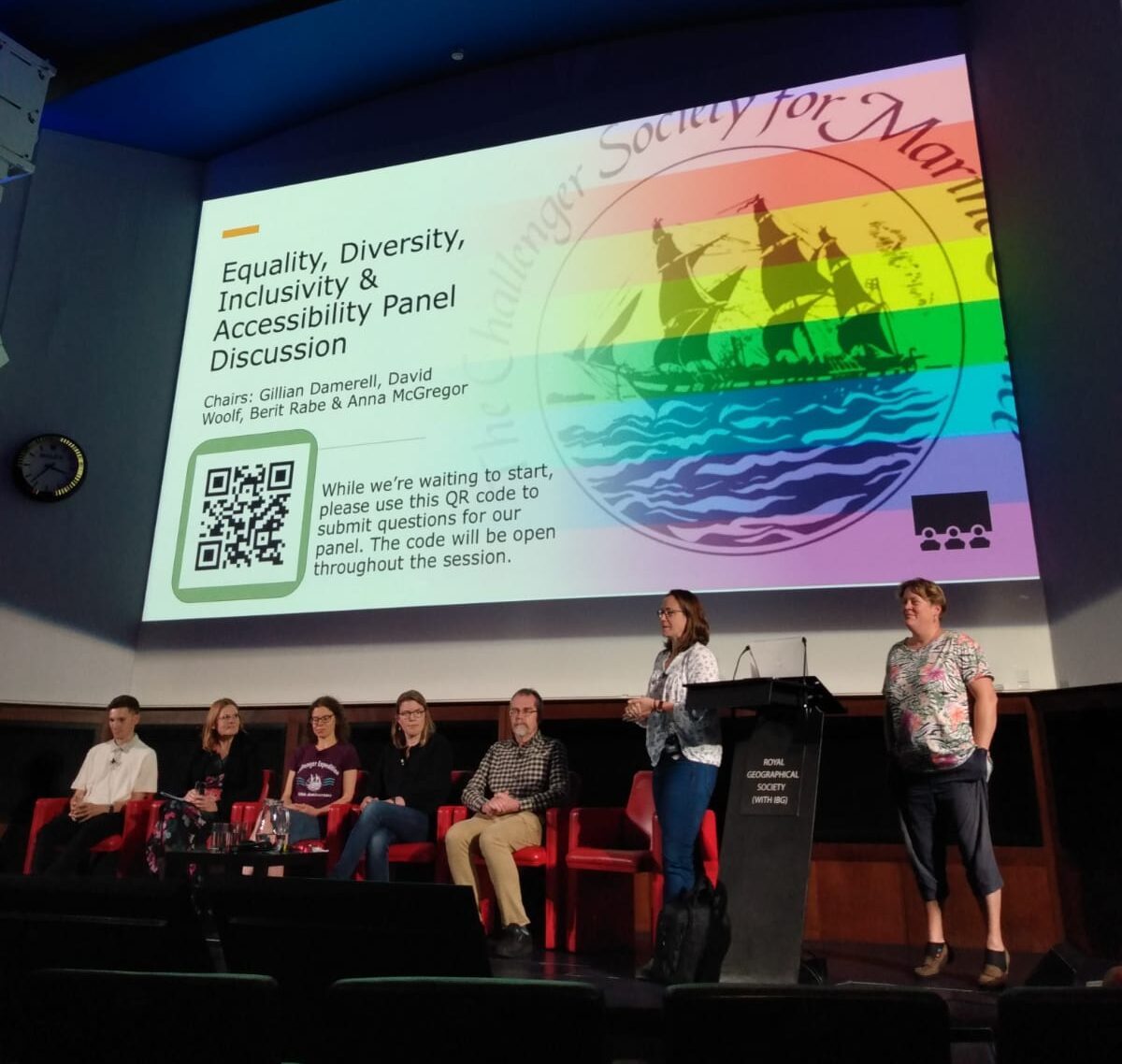A special issue of the journal Oceanography has shone a spotlight on the collaborative FindAScienceBerth project, inspiring people and institutions to make positive change towards increasing diversity.
The FindAScienceBerth project is championed by scientists from organisations including the National Oceanography Centre (NOC), British Antarctic Survey (BAS) and the University of Glasgow, who are members of the Challenger Society for Marine Science's (CSMS) UK-wide equity, diversity, inclusion, and accessibility (EDIA) working group. The project will open-up more opportunities for early career researchers and technicians, particularly from traditionally excluded groups, to participate in scientific ship cruises.
Berths for scientists on research ships are often in short supply, with participation often limited to specific networks within the discipline, which can be limiting for those pursuing careers in marine science. The CSMS EDIA team are coordinating action to address the causes of exclusion and to improve representation across the discipline by providing a user-friendly interface between chief scientists and anyone seeking opportunities to participate in cruises.

NOC's Dr Alice Marzocchi, a co-lead of FindAScienceBerth, and case study for the background of the project proposal, explains: "Gaining shipboard experience is extremely valuable for early career marine science researchers, including myself. I did my MSc at the University of Southampton in 2011 and for my dissertation I worked with scientists from the NOC, which led to a fantastic opportunity later on to join a research expedition, which was quite a lucky and unique opportunity as it would have been rather difficult for me to join such an expedition through my PhD network. With the FindAScienceBerth project, we aim to open up these opportunities more broadly, going beyond fortuitous connections and existing personal networks that are not equally available to everyone."
Professor Kate Hendry from British Antarctic Survey launched the CSMS EDIA Working Group in 2021. She is currently the Deputy Science Leader at British Antarctic Survey for the Polar Oceans Team and a former chair of the Diversity in UK Polar Science Initiative (DiPSi).
Professor Hendry said: "Sea-going experience doesn't only give researchers the opportunity to put their work in context, but it can really launch careers. I was invited on an expedition just as I was coming to the end of my PhD studies. The expedition took me to sea for the longest I'd ever been before (about six weeks), and it gave me so many exciting opportunities to learn from a fantastic team. The samples I collected went on to form the basis of a paper, and then a successful postdoctoral scholarship application! The work expanded and very much launched my career. I'm forever grateful for the opportunity and I hope that some of our initiatives in the Challenger Society and the Find A Science Berth project will support others in a similar way."






